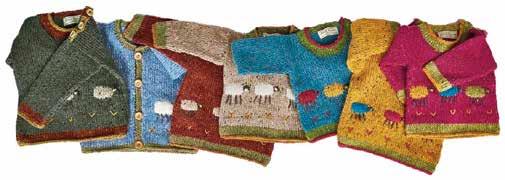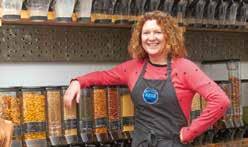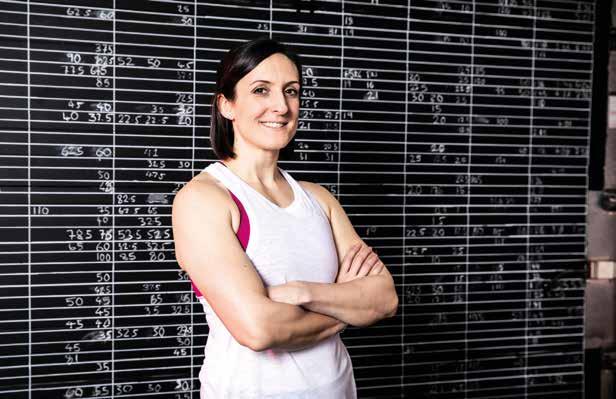
5 minute read
Sustainable fashion ‘slow fashion
Many people are familiar with the term ‘fast fashion’ and all of its negative connotations. In recent years, a new phrase has been coined as a direct reaction to this: ‘slow fashion’. The term ‘slow fashion’ is generally seen as a recent invention, but the movement has been around for longer than we think.
Slow fashion is the caring, considered and calm alternative to the hurried and harmful world of fast fashion – and it’s gaining considerable traction, not least as a result of the COVID-19 pandemic.
Advertisement
Research has found that 15% of consumers in the US and Europe expect to buy more ecologically and socially sustainable clothing as a direct result of the over-consumerism and irresponsible practices that have been thrown into light through the Coronavirus crisis. In addition, a post-lockdown report has found that 83% of consumers surveyed thought that clothes should be designed to last longer and be repairable. 58% bought fewer clothes during lockdown with 28% reusing and recycling more than normal. Interestingly, the same report found that 27% of Generation Z – the 18-24 year-olds who are generally associated with fast fashion – want to support socially and environmentally responsible brands.
What is fast fashion?
As the term suggests, everything about fast fashion is done at speed. Trends are quickly identified, garments are hurriedly made and rushed out to market, items are bought and delivered in the blink of an eye, then worn a couple of times before moving on to the next new thing.
websites with hundreds of new products every week. Intense competition leads to customers who increasingly expect faster service and lower prices, but, worryingly, it has a knock-on effect.

The frenetic pace of fast fashion has potentially damaging effects from cradle to grave – from choice of raw materials and how these are sourced, through the treatment of suppliers and workers, manufacturing processes and impacts, and eventual disposal. The speed of manufacture has an inevitable impact on the quality of garments produced. The materials used are frequently cheap – often synthetic, the stitching suspect and the finishing poor. There’s just no time to quality check before the next new trend hits the machines.
The substandard quality of manufacture and finished product and the transient nature of the trends mean that all too often items are discarded after only a few wears. In the UK, 30% of discarded clothing ends up in landfill. Pressure on price increases the risk of exploitation along the length of the supply chain, with growers and factory workers particularly vulnerable to poor working conditions and low wages. Corners are cut at every turn with potentially serious environmental effects.
What is slow fashion and why is it on the rise?
Growing awareness of the damage caused by fast fashion has led to the emergence of the slow fashion movement. Slow fashion is the opposite of fast fashion in every way. It’s about responsible sourcing, care of manufacture, quality of materials, and longevity of garment life. Again, research shows that the term ‘slow fashion’ generated over 90 million social impressions in 2019, as changing shopping behaviours started to take root.
Suppliers take care to understand the provenance of their stock and ensure that items are carefully made, building sustainable clothes that are made to last, often using natural materials with low environmental impacts of the process.

As far as the customer is concerned, buying decisions are considered and unhurried. Time is taken to research the best options. Thought is given to how an item will complement an existing wardrobe. This often leads to the purchase of investment pieces, which may cost more, but are of a quality that is built to last, wear after wear. These pieces are frequently of a timeless design that can bypass fleeting fashion trends to remain relevant for years to come, to the extent that items may become heritage pieces that are passed down through generations.
And the movement is spreading. There’s increasing evidence that lockdown has led consumers to reconsider their approach to fashion to embrace a more sustainable process, collect more enduring pieces and curate a more capsule-based wardrobe.
What does this come down to? Perhaps the COVID-19 pandemic has sown a seed of awareness about humankind’s impact on the planet and our combined responsibility to rein in over-consumption and reduce global inequalities for the benefit of future generations. The challenge, when things return to whatever the new normal will be is to maintain the profile of sustainable fashion in the face of what many envisage will be a fury of discounting as struggling companies fight for survival. Research shows that a large percentage of consumers are looking forward to buying clothes again post-pandemic but it is also predicted that, particularly in the high end market - many consumers will be looking for so-called “investment” pieces — minimalist, last-forever items — that feel more responsible given the state of the world.
The House of Bruar, situated in rural Perthshire, is a strong advocate of slow fashion. Since the doors were first opened in 1995 the business has become Scotland’s premier independent country fashion retailer, bringing together an impressive 26 collection of traditional Tweeds and cashmere garments with the very latest in rural style to create a unique shopping experience that can now also be enjoyed online.
The House of Bruar stocks expansive ladieswear and menswear collections, sporting accessories and equipment, as well as a wide range for the home and kitchen. Amongst their range of country clothing you will find exquisitely made garments from Harris Tweed, Julie Dillon Knitwear, Fair Isle Knitwear and Heathergems. Each and every business is committed to supplying the highest quality products which will last a lifetime and will never date.
Pitagowan, Blair Atholl, Pitlochry, PH18 5TW T: 01796 483236 • www.houseofbruar.ccom

James Rizza & Sons Ltd 31 Steven Road, Huntly, AB54 8SX Phone: 01466 792847 rizzas@btconnect.com www.rizza.co.uk
THE RE:STORE THE RE:STORE zero waste shopping

MORAY'S ZERO WASTE REFILL SHOP Ever thought about a waste-free Christmas? At the Re:store you’ll find lots of low waste Christmas gift ideas, PLUS all the ingredients for your cake and pudding! The return of the popular Christmas Cake in a Bag - all the dry ingredients you need to make a delicious Christmas cake.
VISIT US AT THE RE:STORE MORAY ON FACEBOOK FOR UPDATES AND INFO
Tuesday - Saturday 10am - 4pm • Closed Sunday & Monday
Merry Christmas
0800 151 3188 www.dogrobes.co.uk











